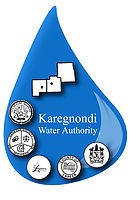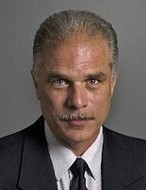Since publishing this post we have followed up on more of the wheelings and dealings behind the KWA. Read about a questionable contract between Emergency Manager Ed Kurtz and the KWA here.
New emails released in Gov. Rick Snyder's Friday doc dump reveal that the Michigan Department of Treasury and Flint Emergency Manager Ed Kurtz were advised to not join the Karegnondi Water Authority, on several occasions, before their April 2013 announcement that the city would in fact be joining the KWA. The revelation raises a series of questions about the motivations behind the decision to reject a more cost-effective offer from the Detroit Water and Sewerage Department, especially since much of the narrative surrounding the water switch has do with austerity and cutting costs.
These new emails, however, suggest this may not have been the case.
In November 2012 the Michigan Department of Treasury sent out a SOW (Statement of Work), searching for a contractor who could "provide an analysis of the water supply options for the city of Flint to assist the Department of Treasury and the city of Flint in determining the best available option."
For the last few months of 2012 through the spring of 2013, Flint wrestled with an enormous decision: Should the city sign an updated 30-year contract with DWSD or should it join the KWA, a new plan that would entail building a costly pipeline to Lake Huron. While the decision would affect thousands — and there were definitely an array of opinions on the matter — the choice ultimately rested in the hands of two individuals: Kurtz, the then-emergency manager, and Andy Dillon, the state's then-treasurer. Michigan law states that in cities with emergency managers all expenses over $50,000 must be approved by Michigan's Department of Treasury — and so Kurtz would make a recommendation and Dillon would give the final OK. (Flint City Council did vote on the decision but it was more symbolic and heavily pressured — more on that in a bit).
The SOW contractor was supposed to help with the decision — they would provide an unbiased assessment of the two plans.
According to documents from Gov. Snyder's release of over 20,000 pages of Flint-related records, on December 21, 2012, Tucker, Young, Jackson, Tull, Inc., a group of consulting engineers based out of Detroit, presented their findings related to the SOW. After reviewing plans from the DWSD and the KWA, the group raised several questions about the KWA plan, pointing out that it did not include engineering design costs and other management administrative costs. The firm estimated that the KWA plan would cost $357.6 million to complete, nearly $100 million more than KWA was projecting.The group also pointed out that while Flint would be responsible for 30 percent of the construction costs, they would be a minority vote on KWA's board, as counties like Lapeer and Sanilac sat on the board and voted "even though they are not purchasing water nor contributing to the construction costs." This is an important fact, as it means the KWA board could at some point hike up water prices for Flint — the very issue that had caused a fraught relationship with the DWSD.
“Separating the water system appears to run counter to the Treasury’s efforts of consolidating services,” TYJT pointed out in their review, also noting — and most importantly — that four of DWSD's proposals were more cost-effective than the KWA plan.
Yet despite the warning from TYJT, Kurtz pushed for KWA. In a treasury email describing a January 28, 2013 meeting with members of the Michigan Department of Treasury, Flint officials, the Genesee County Drain Commissioner/KWA CEO Jeff Wright and engineers for the pipeline, Kurtz said he felt like the KWA option was the cheaper option and, as the email explains, "He also stated that he believed that the Mayor and City Council will support the KWA Project."
Kurtz's statement was likely influenced by Rowe Engineering (the company tasked with planning the pipeline) and Genesee County Water and Waste Services (read: Mr. Wright) who both had stakes in the KWA pipeline coming to fruition and were both asked, by the state, to provide analyses of the TYJT analysis prior to the January 2013 gathering. As you can imagine, they both came to the KWA plan's defense. With Rowe's CEO writing that it was a "credible" project.
So let's take a step back — what exactly is the deal with the KWA? Who was behind this plan? What were its initial goals? And why was it so important that Flint join?
In a revealing October 24, 2012 article, MLive's Ron Fonger details some of the less-discussed motivations behind the KWA pipeline. The article deals with the decision, made by the Genesee County Board of Commissioners, to borrow $35 million to construct the pipeline's Lake Huron intake.
"[The pipeline] opens this whole region up to the blue economy," County board Chairman Jamie Curtis told Fonger, who then wrote that Curtis was "referring to the potential for job creation by companies that require large volumes of clean, untreated fresh water."
We don't know too much about companies that "require large volumes of clean, untreated fresh water," so we decided to do some googling. You know what came up? A lot of articles about fracking. And a few about almonds.
The "blue economy" Curtis is referring to could have also been something less "google-able" and more specific to the region. As MLive reported in May 2011, DTE Energy indicated that it would be interested in purchasing as much as 3 million gallons of untreated lake water each day from the KWA pipeline once it was completed. Wright explained to the paper at the time that the news was "very encouraging" and could mean increased opportunities "as more businesses are made aware of (what we are doing and) the lower cost of untreated water."
As if this isn't curious enough, the October 2012 article belabors the fact that Flint, at this point in time, had not signed on to buy water from the KWA. Flint is the biggest city in the county, and as you can guess its participation was, well, deeply desired and critical for determining the scope of this "clean, untreated fresh water" economy booster.
As Fonger goes on to write, "Wright said he has set a January goal to begin final engineering on the pipeline — something that can't be done without knowing whether Flint will be a partner in the project. Flint's decision will affect every aspect of the preparation, including the size of transmission pipes and pumping stations that will be needed."
So basically it is implied that Flint is sort of making or breaking these plans. In fact, earlier that month in another article about the KWA's preparations, Wright told Mlive that "the only question at this point really is whether Flint is going to be a partner." He went on to explain that he met with Kurtz to discuss the move and that he wanted "to resolve the question before Kurtz leaves his position." Wright — who was an FBI informant against a Detroit political consultant with Flint ties in 2007, two years after he, himself, was accused of money laundering — had been working on the KWA plan since 2007. MLive in 2010 even said it was "a pet project of Wright's." Given this, it's unsurprising he was so adamant about "resolving the question."
Of course, the decision did not fall solely on Kurtz. He needed approval from the state. Despite Kurtz's January support for the KWA plan, no decision was made for months as the state reviewed a follow-up analysis from TYJT, which reiterated many of its previous points. In the second report TYJT also pointed out Wright's ever-changing reasoning for why the KWA pipeline was the best choice for Flint. Zeroing in on a Nov. 1 2012 meeting with Wright, TYJT recounted how the Drain Commissioner originally told them that the new pipeline was necessary because the DWSD system lacked reliability (TYJT shut this notion down). The focus at that meeting had not been cost effectiveness.
Considering Wright's previous quote to MLive — "The only question at this point really is whether Flint is going to be a partner."— one can imagine that this period of limbo was deeply disquieting and angst-inducing for those rooting for the KWA plan (aka the Genesee County commissioners such as Curtis and Wright).
"Eight months ago, Curtis stressed the importance of the region having a direct supply of fresh water that can be transported here without paying the city of Detroit to use its transmission line as it does now.The board chairman has promoted the pipeline as a key to the region's future economy," wrote MLive's Fonger in a February 18, 2013 article titled, "Genesee County commissioners tired of waiting for Flint water pipeline decision."
Kurtz too made an appearance in the article noting, “I’m going to share with [the state] that we need to make a decision – we’re running out of time. We’re anxious to make a decision, too."
These facts about the genesis of KWA are important for two reasons: It shows less-obvious goals of the pipeline (goals relating to new economic opportunities, not cost-saving benefits) and it also shows the borderline-frenetic energy of those waiting for Flint to sign on to the plan. Flint was a city with a dwindling population and a track record of economic insolvency (hence the emergency manager) — should it really be taking on a new construction project? Especially when considering DWSD's proposals were supposedly more cost effective?
Still waiting on the state to come to a decision, those touting the KWA pipeline came up with creative ways to keep conversation — and support — for the new plan going. This is where the notion that city council made the decision comes in. On March 25, 2013 Flint City Council did indeed vote (7-1) in favor of the KWA.
While Wright touted how important the council vote was, writing in a March 26 press release: "I have said from the beginning that this decision must be made by Flint's City Council and Mayor," we know this is not fully the case considering he told MLive a few months earlier that he wanted to get the deal done with Kurtz in office.
The farcical nature of the city council vote is highlighted in another quote from the same press release: "The most important aspect of this vote is the fact that we as an Authority can move forward knowing Flint's intentions," said Wright. This is a low-key acknowledgment that the vote was purely symbolic — it was about "knowing Flint's intentions," not actually making a decision.
Probably the most troubling fact about the city council vote, however, is that it had been postponed after a first vote was scheduled in early March and council members complained they were not given enough time to review the deals. While, yes, the vote was postponed — the fact that someone even considered having council members vote with little background details is discouraging. And then of course there is the fact that it was expected that the city council members would vote "yes." As NBC reported after the original vote was pushed back, "Mayor Walling also said he would like council to approve the deal before the end of March." It was not that they wanted council to vote by March, they wanted them to "approve."
Which, yes, they did.
At this point in the saga, we should not be so surprised that the KWA deal was eventually struck. On April 11, 2013, Dillon wrote Kurtz a letter saying he approved Flint's decision to join KWA. He noted that the DWSD would be sending over a new proposal on April 15, 2013 and that "as such, this approval [of KWA] will be effective at 5 pm on April 16, 2013 after receiving written notice from the city that either no such offer was presented to the county and the city or that an offer was received and was rejected in good faith based upon specified objections."
As we wrote in January, DWSD did submit a proposal on April 15 and as the then-DWSD Director Sue McCormick wrote in an email to colleagues that day: "When compared over the 30-year horizon the DWSD proposal saves $800 million dollars or said differently – saves 20% over the KWA proposal."
Still the DWSD's proposal — the sixth it had submitted — was rejected. The new narrative was born: the KWA was the most cost effective answer for the beleaguered city of Flint. And so when the city, under then-Emergency Manager Darnell Earley, decided to use the Flint River full-time in April 2014, as they waited for the KWA pipeline to be completed, nobody really bat an eyelash.
This post has been updated to include information about Jeff Wright's past as an FBI informant, the fact that in 2005 Wright was accused of money laundering, and the fact the DTE suggested it was interested in purchasing water from the KWA system.
Emails reveal Flint EM and state advised not to join the KWA — it was never about saving money
[
{
"name": "GPT - Leaderboard - Inline - Content",
"component": "35519556",
"insertPoint": "5th",
"startingPoint": "3",
"requiredCountToDisplay": "3",
"maxInsertions": 100
}
]









